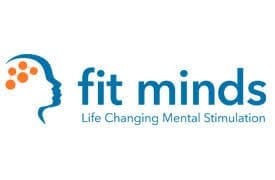With estimates that one in three seniors will die of Alzheimer’s disease and that 40% of people over 80 have some form of dementia, the outlook for growing older may seem daunting. Hundreds of clinical trials are being conducted across the nation to identify a cure for Alzheimer’s disease and other forms of dementia, but what choices do we have for non-pharmaceutical interventions for cognitive decline? One answer is cognitive stimulation!
Volumes of research validate the efficacy of cognitive stimulation, but what is it? Think of cognitive stimulation as exercise for the mind. Learning new and complex content regularly is key to keeping our brains sharp. Four particularly compelling excerpts from research studies include:
- “Regular use of CST encourages individuals to higher levels of mental activity thereby reducing their risk of developing dementia.” Gates & Valenzuela, 2010
- “CST can be used to stabilize or even improve the cognitive functioning of individuals suffering from mild Alzheimer’s disease.” Bottino et al, 2005; Matsuda et al 2010
- “CST also preserve seniors’ ability to perform activities of daily living.” Rebok et al, 2014
- “CST has benefits to offer healthy older adults as well. CST has been shown to delay eventual cognitive decline, while pharmaceuticals have not.” Naqvi, et al, 2013
The value of cognitive stimulation is becoming more widely recognized and endorsed by healthcare professionals around the world. For example, the United Kingdom National Institute for Health and Care Excellence guidelines states that anyone in the UK who has mild/moderate dementia should be given the opportunity to participate in structured group cognitive stimulation and it should be delivered irrespective of any anti-dementia drug the individual is receiving.
Fit Minds was started in Canada in 2010 and has been supporting thousands of seniors with one-on-one and group cognitive stimulation. After leading five other mission-based organizations, Fit Minds’ CEO Janet Knupp brought Fit Minds to the US as she sought an intervention for her mother, Mildred, who had Lewy Body Disease, a form of dementia that also includes hallucinations and paranoia. (Robin Williams was also diagnosed with Lewy Body disease and sadly committed suicide.) Mildred received cognitive coaching two to three times/week and had an exceptional quality of life. She knew Janet and all of her family members until the last days of her life.
“At Fit Minds we believe dementia changes relationships. It does not end them,” says Knupp. “What could be more rewarding than helping seniors keep their brains sharp and allowing them to be all they can be as they age?”
This important information is provided to you by our Sponsor of the Month.

